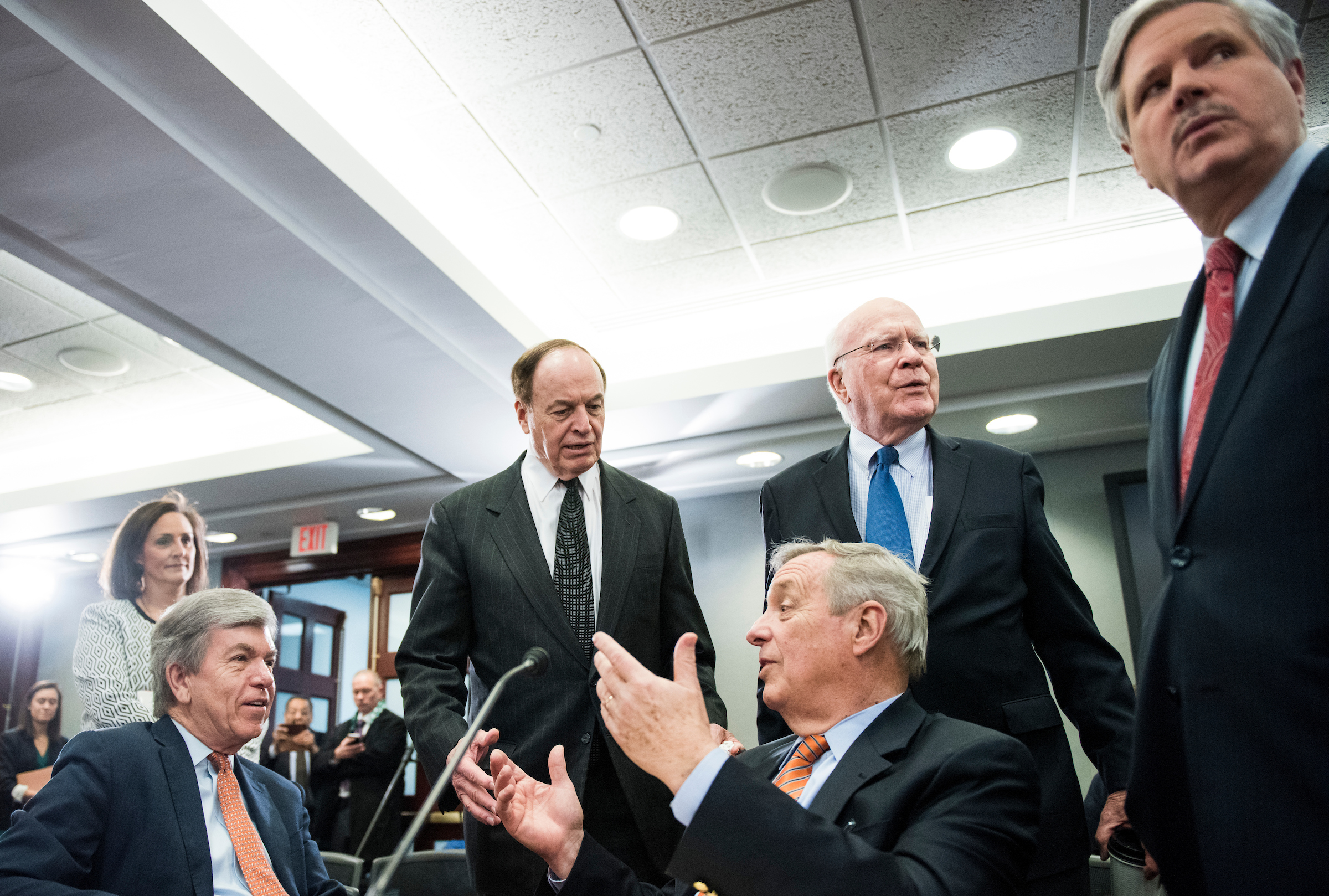Negotiators unlikely to meet self-imposed Monday shutdown deal deadline
Both sides were discussing a simple stopgap measure as a fallback if appropriations deal isn’t reached

The White House and congressional leaders on Monday were buying themselves a little more time for negotiations that appeared to stall out over the weekend, with both sides discussing a simple stopgap measure as a fallback to fund the Department of Homeland Security.
Top appropriators met late afternoon at the Capitol in hopes of salvaging a full-year DHS spending bill, as well as completing work on six other fiscal 2019 bills that are largely completed. But it wasn’t clear if the meeting of the so-called “four corners” — Senate Appropriations Chairman Richard C. Shelby, R-Ala., and ranking member Patrick J. Leahy, D-Vt., and House Appropriations Chairwoman Nita M. Lowey, D- N.Y. and ranking member Kay Granger, R-Texas — would yield an immediate breakthrough.
[Appropriators attempt to revive talks Monday as Friday shutdown deadline looms]
The group halted talks after roughly 90 minutes with plans to meet again around 6 p.m. The break came as lawmakers were set to take an evening vote.
“The white smoke hasn’t come yet,” Leahy said earlier as he went into the meeting, referring to the signal that a new pope has been chosen.
Watch: What is a national emergency? How Congress gave the White House broad, far-reaching powers
Lowey said negotiators are unlikely to meet a self-imposed Monday deadline for a deal, which would enable them to comply with the House’s 72-hour rule before bringing legislation to the floor. “We have a little more time,” Lowey said, raising the possibility of at least a short-term continuing resolution to get past Friday’s deadline. That’s when current stopgap funding runs out.
Senate Majority Leader Mitch McConnell, R-Ky., on Monday filed cloture on a motion to proceed with a House-passed temporary funding bill which could serve as a shell vehicle for whatever the leadership decides.
Talks had been proceeding with both sides expressing optimism headed into the weekend. By late Saturday, however, it was clear talks had stalled.
Republicans hit the Sunday morning talks shows blaming the impasse on Democrats’ demands to cap the number of Immigration and Customs Enforcement detainees rounded up inside U.S. borders at 16,500 by Sept. 30, which some law enforcement officials said could lead to more than 9,000 illegal aliens being released.
On Monday, McConnell said on the floor that “House Democrats decided to add a poison-pill demand into the conversations at the 11th hour.”





